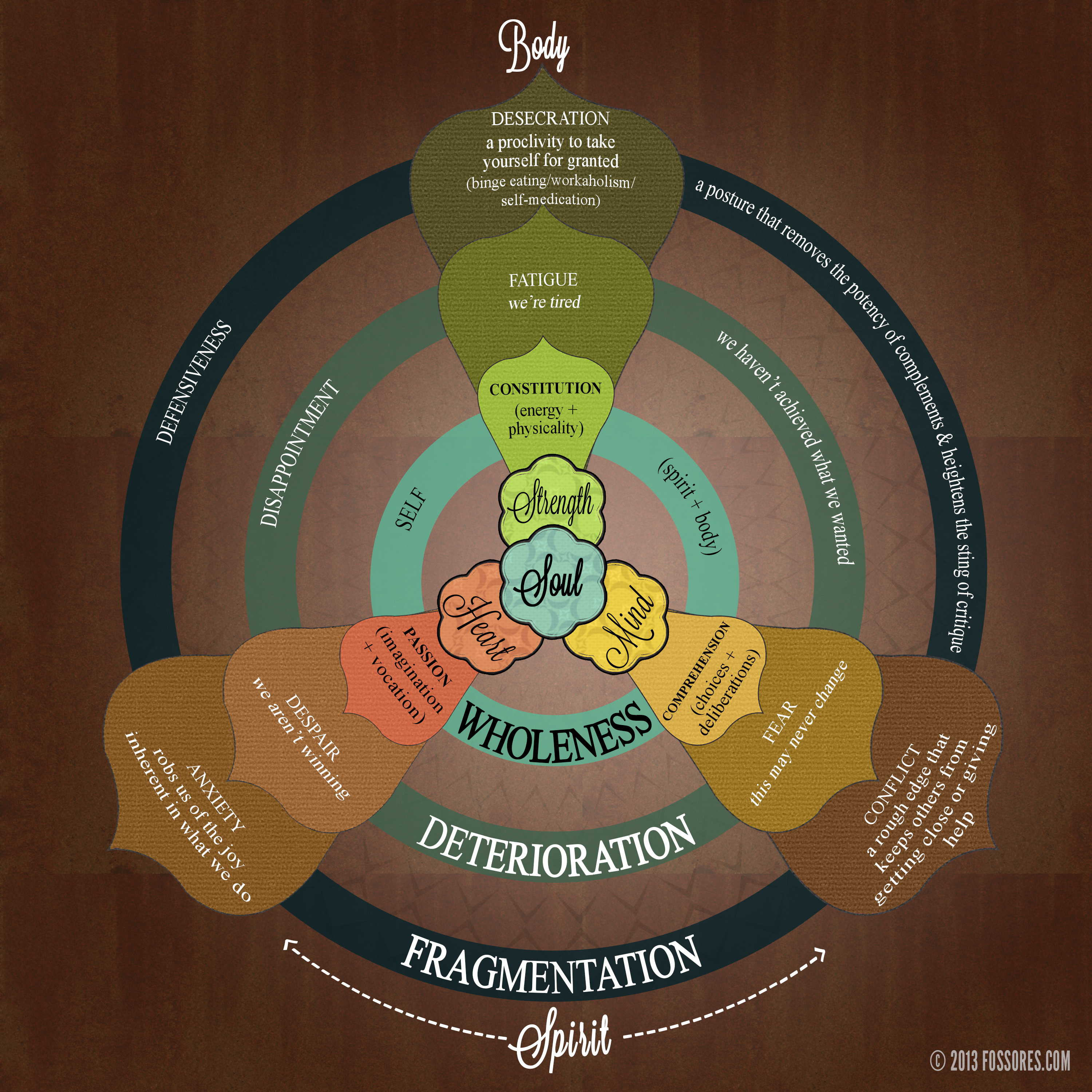What do you do when you don’t feel like yourself anymore?
Our culture knows a lot about self. We have self-help books and seminars, websites devoted to self-betterment and improvement, and a plethora of techniques designed to get us in touch with ourselves, to find ourselves, and to satisfy the deepest longings of our truest selves.
I imagine some of you must be anticipating that I will lambaste our culture for its selfishness. I still may, but I’m hoping to make a different point entirely.
I want to help you understand what “self” really is.
Think for a moment about the word and all it entails. Think about its connotations. Who am I when I’m being myself? How about when I’m not myself? How do I know when I’m acting like myself? How do others know when I’m not? What is it that “self” refers to? Is it just behavior? Look at David, he’s acting so normal…not like himself at all. Or is it also attitudes? David was really sarcastic today, which is totally not like him. Or could it also entail desire? David wants to take salsa lessons? What’s happened to him? Or even physicality? David has gained so much weight, he doesn’t even look like himself any more.
Self really is our catch-all term for everything to do with a person’s person. It’s their body, their body language, their skill set, their attitudes and passions and desires, their web of relationships, etc.
The Bible has a word for all this, too. Just like our word “self” the biblical vocabulary includes a term that refers to a person in their entirety. This word connotes no distinction between how we look and who we are, notices no segregation between how we think and what we want, and doesn’t differentiate between what we do and how we dream. It is a word that treats each person as one undivided whole. The ancient Hebrews had no concept of a mental self, or an emotional self, or a physical self. They believed there was just you, yourself. There was only one self. And the word they used to describe that self was “soul.”
In the First Testament, “soul” was the thing that makes you, you (see Genesis 2.7, Job 12.10, Mark 8.37). In Genesis 2 we’re told God breathed his Spirit into the yet-unliving body of Adam and “he became a living soul.” Soul is what we get from the marriage of spirit and body.
The next time you start thinking about improving yourself, or finding yourself, or pleasing yourself, stop. Take a minute. Then ask yourself whether the things you want will be good for your soul—for that eternal, immortal, irreplaceable you that only you can be.
A soul isn’t something you can take care of. A soul isn’t something you can replace. A soul isn’t something you can earn.
Because you don’t have a soul; you are one.
fossores
Related posts
Categories
Category Cloud
Tag Cloud
Recent Posts
- Victors and Victims November 6, 2018
- 3 Hacks for Happiness October 29, 2018
- Hope Against Death September 20, 2018
- The Shape Of The Cross September 19, 2018


